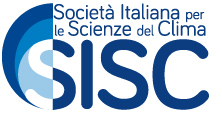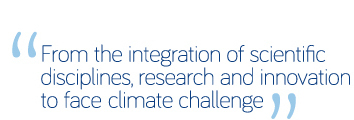The Italian Society for Climate Sciences (SISC) was created to serve as ameeting point for scientists from different disciplines, who use climate information for their research: from climatologists to physicists and chemists, geographers to agronomists, economists to political scientists, and all scholars that deal with climate-related sciences and their applications.
The Italian Society for Climate Sciences aims at contributing to scientific progress and innovation of climatic sciences in Italy by promoting the convergence of disciplines and multidisciplinary research.
The institutional purposes of the SISC are:
a) to the world of research:
- to foster the exchange of ideas, the creativity and the development of new interdisciplinary research;
- to promote communication and cooperation between universities and research institutions in Italy, strengthening the presence of climatic sciences in both Italian universities as well as higher education systems;
- to attract young talents to build a new interdisciplinary scientific community and increase overall productivity;
- to stimulate and coordinate the Italian contributions to the International programs in the field of climate sciences;
- to become the reference point and the meeting place for Italian scientists living abroad.
b) to the society:
- to increase the impact of the studies and of the debate on climate issues, giving scientific rigour to the analysis of climate policies for mitigation and adaptation;
- to promote the dialogue among scientists, policy makers, businesses and citizens to support actions in the interests of the society and the environment;
- to provide research results to institutions, businesses and citizens
The SISC association is non-profit and non-advocacy, acts according to ethical principles and promotes policies for equal opportunities.
The aims of the Association are pursued in particular through the organization of conferences and debates addressed to the scientific and policy communities, the implementation of web-communications, the promotion of training courses for young graduates, and collaboration with multidisciplinary doctoral courses on climate science.



